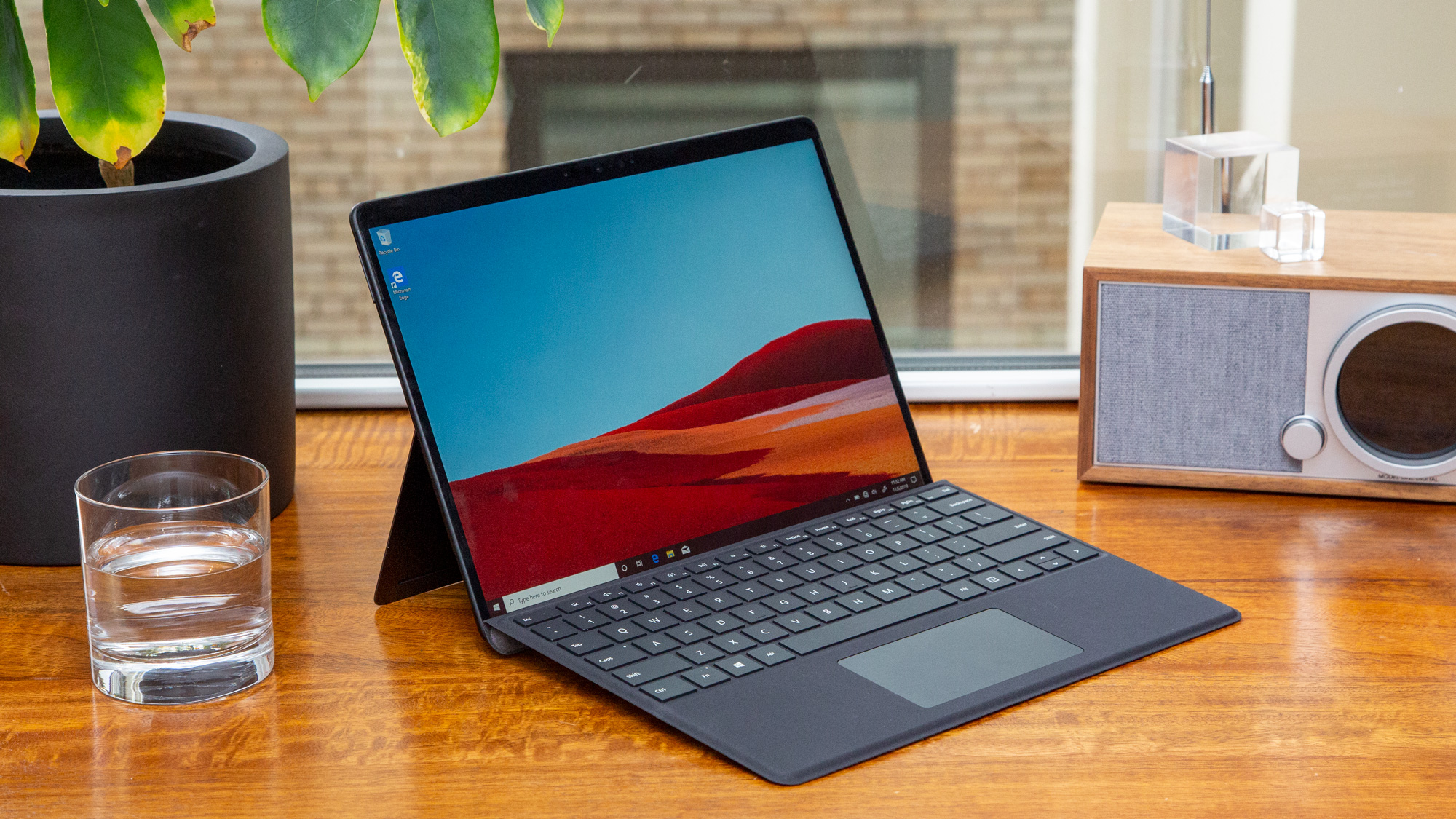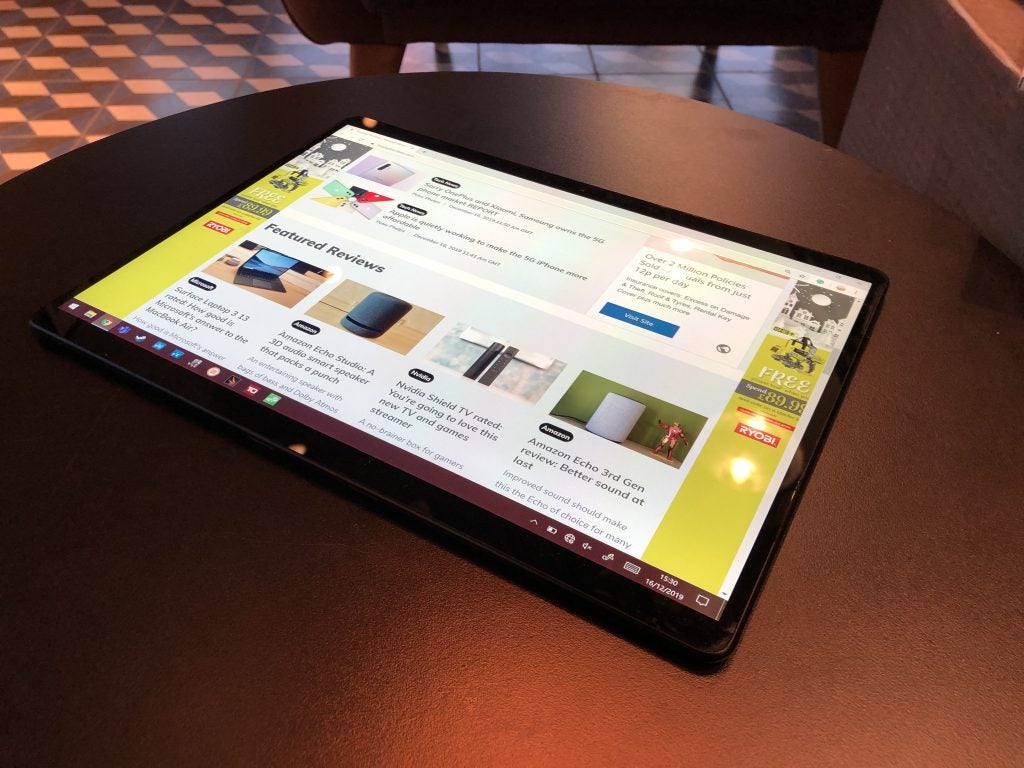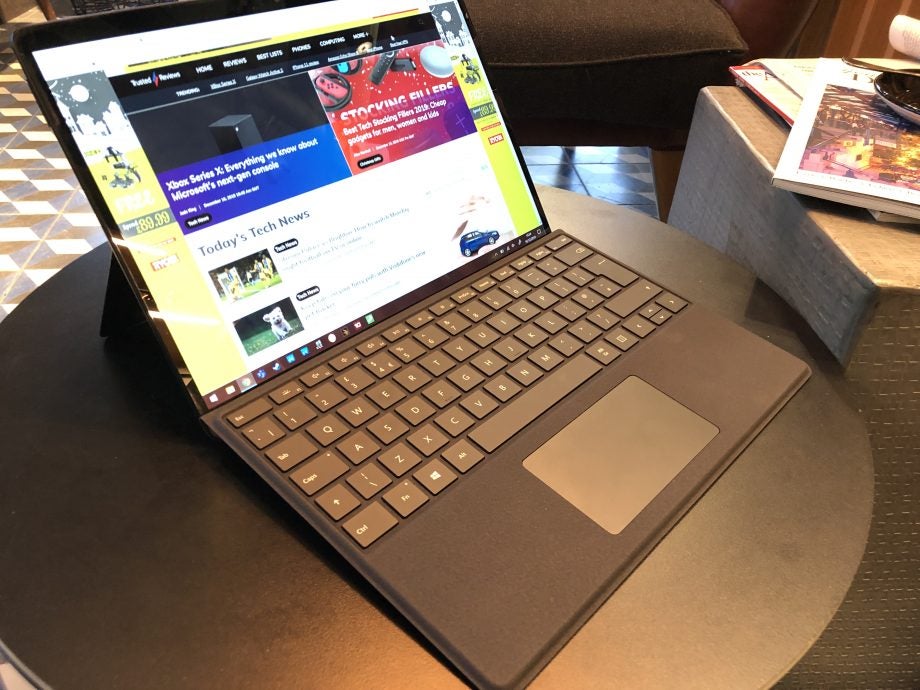

The Go is the one to get when the ARM CPU is powerful enough and the Battery long enough for a 2-in-1.

That's my impression of the Surface devices. The typecover is a little cramped tbh however a portable external cheap keyboard would be an option to take or not take or even keep 2 of these in locations to go to.

The screen at 10.5 is actually very usable. SO another generation or 2 might correct that. The main problem right now is no ARM and terrible battery. However, the most useful device 2-in-1 IMHO is the Go Form Factor which is ultra-extreme portable and easy to hold/use as a tablet for media and commuting. So it will give me another solid year of use. Comparing to buying a MBA M1 + iPad I've saved a lot of money and HATE the locked iPadOS system so could not bear to use that. I've finished using it for teaching and now it will be useful for digital art and the bigger screen will be great. In addition it's not that great as a portable device with the typecover then a sleeve to protect it ends up being just over 1Kg which is light but not extreme portable ie only 250g lower than a lightweight laptop. The biggest problem apart from slow start up is the low battery as it needed a lot of baby-sitting and charging. It works really well with a good connection via cloud office-365 however and edge. However, those specs were too low and it was overall a little sluggish. I needed digital pen and it served that function. Our experts review the latest games, gadgets, and more each week.I got a half-price SPX new (SQ1 8GB model however) last year for teaching. Xbox Game Pass Friends & Family pricing confirmed Arm and Qualcomm have worked together for years, but Qualcomm's purchase of Nuvia could help the chipmaker distance itself from Arm a bit and provide flexibility in the future. This battle will likely go on for some time before we see a conclusion. Nuvia's acquisition is supposed to help Qualcomm compete with the likes of Apple, but it's now hit a bit of a snag.Īrm alleges that Qualcomm has continued to use terminated licenses since March 2022. Nuvia was founded by the makers of Apple's A-series chips, which laid the foundation for the popular M-series processors seen in MacBooks, Macs, and other Apple hardware. Qualcomm purchased Nuvia in 2021 for $1.4 billion. The lawsuit centers around Qualcomm's work on new chips using tech from Nuvia. Arm sued Qualcomm, alleging that the latter breached licensing agreements and committed trademark infringement. NVIDIA and AMD weren't the only tech giants to make the headlines for legal battles this week.


 0 kommentar(er)
0 kommentar(er)
